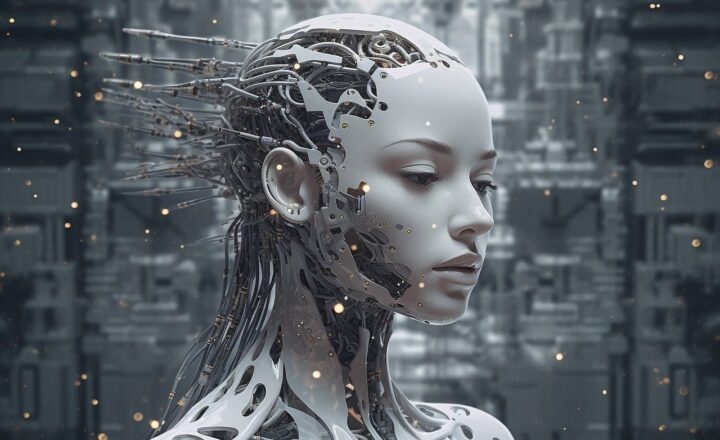How Writers Have Imagined the Future and Inspired Innovation Through Fiction
November 17, 2024

Fiction is often considered a mere escape from reality, but throughout history, countless authors have harnessed the power of imagination to paint vivid depictions of the future. Their foresight into technological advancements, societal changes, and the human condition has not only influenced generations but has also played a pivotal role in inspiring innovation. In this article, we will explore how writers from various genres have envisioned the future, the technology they predicted, and the way these ideas have shaped and continue to shape our world.
1. The Role of Fiction in Shaping Innovation
The relationship between literature and technology is multifaceted. Writers often serve as both critics and predictors, using their narratives to explore possible futures. From Jules Verne to Isaac Asimov, numerous examples illustrate how speculative fiction has not only dealt with future technologies but has also provided a space for inventors and innovators to dream big.
Innovation often stems from inspiration, and fiction serves as a wellspring for inventive ideas. For instance, the fictional works of H.G. Wells depicted advanced technologies that later came to fruition, influencing engineers and scientists. Notably, as we delve into this interplay, we can see profound examples in literature that predicted not just devices but entire paradigms, altering our understanding of progress and driving humanity toward new milestones.
2. Pioneering Visions: Writers Who Envisioned Advanced Technology
2.1. Jules Verne and the Dawn of Science Fiction
Jules Verne, often hailed as the father of science fiction, imagined incredible technologies long before they became a reality. Works like “Twenty Thousand Leagues Under the Sea” (1870) explored the concept of submarines and advanced underwater exploration, while “From the Earth to the Moon” (1865) depicted space travel using a giant cannon.
Verne’s imagination was not simply fanciful; his detailed descriptions of technologies stimulated scientific inquiry. Today, many engineers cite Verne as a significant influence on their work, showcasing how fiction can shape real-world innovations.
2.2. Isaac Asimov: The Robotics Revolution
Isaac Asimov’s “I, Robot” series is famous for introducing the Three Laws of Robotics, laying a foundational framework for ethical considerations in artificial intelligence (AI). His narratives underscored the importance of human control over machines, a philosophy that resonates deeply with today’s discussions on AI technology. Asimov’s foresight not only entertained readers but also prompted engineers and ethicists to consider the implications of robotics, ultimately guiding the development of modern AI ethics.
2.3. Ray Bradbury and the Cautionary Tales
Bradbury, particularly in “Fahrenheit 451,” warned of a future dominated by technology to the detriment of human connections and intellectual rigor. This caution against technological overreach reflects contemporary concerns about social media and television’s role in fostering a disengaged society. Writers like Bradbury inspire innovators to reflect on the ethical implications of their inventions, ensuring that technology serves humanity rather than diminishes it.
3. The Impact of Dystopian Literature
Dystopian fiction often serves as a mirror, reflecting societal fears and cultural critiques while predicting the consequences of current trends. These narratives have the power to motivate change and innovation by highlighting potential pitfalls.
3.1. George Orwell and the Surveillance Society
George Orwell’s “1984” introduced the concept of pervasive surveillance and authoritarian governance, concepts that resonate profoundly in today’s increasingly monitored lives. Orwell’s depiction of a totalitarian regime raises critical questions about privacy, ethics, and technological control, challenging innovators to think about the implications of their work within the societal framework.
3.2. Margaret Atwood and Biotechnological Ethics
Margaret Atwood’s “The Handmaid’s Tale” offers a provocative examination of the implications of genetic manipulation and reproductive technology. In an era where biotechnology advances rapidly, Atwood’s work prompts important discussions about ethics and the potential consequences of unchecked innovation. Writers like Atwood serve to remind scientists and technologists that the advancement of knowledge must be balanced with ethical considerations.
4. The Visionaries: Limiting the Bounds of Imagination
While many writers inspire innovation through imaginative foresight, some directly impact the development of technology through their work and advocacy.
4.1. William Gibson and Cyberpunk
William Gibson’s “Neuromancer” introduced the concept of cyberspace and digital interconnectedness, laying the groundwork for what would become the internet and digital communication systems. The cyberpunk genre that Gibson pioneered has influenced countless developers and futurists to push the boundaries of technology, contributing directly to advancements in computer science, virtual reality, and cyber technologies.
4.2. Arthur C. Clarke and Predictive Insights
Arthur C. Clarke famously stated, “Any sufficiently advanced technology is indistinguishable from magic.” His works, such as “2001: A Space Odyssey,” envisioned satellite communication, space exploration, and artificial intelligence. Clarke not only inspired fiction but also contributed to real scientific advancements, highlighting the capacity of writers to foresee and directly impact innovations that reshape human life.
5. Conclusion: A Future Shaped by Fiction
Fiction is not merely a repository of stories; it is a powerful force for inspiration and innovation. The works of visionary writers have influenced the trajectory of technology and society for generations. By imagining possibilities beyond the present, these authors have encouraged thinkers, inventors, and innovators to challenge the status quo, exploring pathways that lead to new inventions and social reform.
As we look to the future, the interplay between literature, technology, and innovation will continue to evolve. In a world increasingly driven by technological advancement, we should remember to nurture our imaginations, drawing on the creativity of writers who inspire us to dream bigger and think deeper. The future, shaped by both the words of these writers and the innovations they inspire, is a narrative yet to be fully written.







